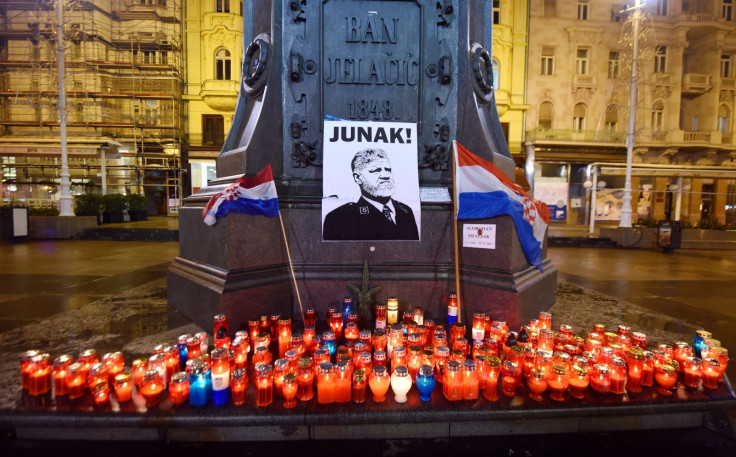Deadly chemical identified in vial used by Croat war criminal Slobodan Praljak to commit suicide
An investigation has been started to find out how the poison was smuggled into the court.
The Dutch police have started an investigation into the death of a Croat war criminal who consumed poison during his trial at The Hague. On 29 November, Slobodan Praljak took out a vial and drank from it after shouting: "I am not a criminal". His lawyer then confirmed that his client had consumed poison.
The incident occurred seconds after the International Criminal Tribunal for the Former Yugoslavia (ICTY) confirmed Praljak's 2013 sentence of serving 20 years in jail for crimes in the Bosnian war.
The international criminal tribunal has charged the Dutch authorities with the investigation into the suicide. "An independent investigation is ongoing which has been initiated by the Dutch authorities at the request of the ICTY. We will cooperate fully," a court spokesperson said.
Questions have arisen regarding how the 72-year-old former military general was able to bring the substance inside the court and whether he had help from another party. The Dutch newspaper NRC suggested that the six suspects at the hearing were elderly and "suffering from all sorts of illnesses". It was "not unusual that he could have brought his medication to hearings", the article suggested.
"There was a preliminary test of the substance in the container and all I can say for now is that there was a chemical substance in that container that can cause death," Prosecutor Marilyn Fikenscher told The Associated Press, but would not disclose what the specific agent it was.
Nika Pinter, Praljak's lawyer, said that she was unaware that her client planned to kill himself and did not know how he managed to smuggle it past the court's security.
According to Croatia's Hina news agency, Pinter described the war criminal as "an honourable man who could not live with the war crimes conviction and leave that courtroom handcuffed".
In Croatia, Praljak's death was mourned with a minute's silence and Bosnian Croats lit candles and held vigils in his memory. On 30 November, Croatian Prime Minister Andrej Plenkovic said that the accused was "obviously shaken by the possibility he would be convicted" of war crimes and wanted to send a message to the UN court.





















